Announcer: Difference between revisions
| Line 58: | Line 58: | ||
=== Foreign announcers === | === Foreign announcers === | ||
{{incomplete|Smash 64 | {{incomplete|''Smash 64'' French and German, ''Brawl'' Korean}} | ||
====''Brawl'' onwards==== | ====''Brawl'' onwards==== | ||
{|Class=wikitable style="text-align:center;" | {|Class=wikitable style="text-align:center;" | ||
Revision as of 00:06, April 17, 2020
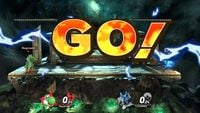
The announcer (ナレーション, Narration), called Narration in-game until Super Smash Bros. Brawl, is an unseen character that has appeared in all the games of the series, existing to (often but not always) exclaim what is happening in the game or what has happened. Though they have no direct effect on gameplay, the voice does act as an auditory signal for multiple events in the games, both within matches and the various menus (such as saying "Ready? Go!" upon the activation of Konga Beat, Donkey Kong's former Final Smash in Brawl and Smash 4, which is the only attack in all of the series to involve the Announcer in any way). All of the announcer's voice clips can be heard in the sound test.
The identity of the announcer (real or plot-based alias) has never been revealed within any of the games, and his specific role in the series beyond mechanical has never been clarified, if there is one. The voice actor for the announcer has also always voiced Master Hand and Crazy Hand, but this relationship has never been elaborated on if a deliberate relationship between the three even exists.
The announcer has been voiced by approximately 13 actors to varying degrees, for each game in the series as well as for different regions and languages. The English voice actor is considered to be the "primary" one in each game and is used by default in NTSC versions, which means he is also used in Japan, albeit with some minor differences in his lines, including character names.
Announcers
Super Smash Bros.
Jeff Manning was the first announcer in the series, starting many of the trends that would later be followed by the future announcers; in addition to his booming style and various exclamations during gameplay, such as characters being selected, Jeff Manning started a trend where both the Announcer and Master Hand are voiced by the same person. Manning's voice has a significant filter applied to it, causing his voice to echo, as well as increasing the intensity of his voice; his actual delivery, however, is relatively calm, and he does not generally hold out words for long periods of time.
Outside of Manning's voice, two other actors provide the announcer's voice in different regions; Frank Wölfen provides his voice in the German PAL version, and Jean-Marc Delhausse provides his voice in the French PAL version. The Chinese version of the game, released for the iQue Player, reuses Manning's voice.
Super Smash Bros. Melee
Dean Harrington is the second announcer in the series. He takes on a different inflection than Manning; Harrington yells more similarly to an emcee at a boxing match, with his phrasing often lasting for long periods of time, as well as a generally more intense voice than Manning's. Like Manning, Harrington's voice has an echo filter applied to it; other filters applied to his voice, however, cause Harrington's voice to have a more muffled tone compared to the other announcers. With the introduction of Crazy Hand in the series, Harrington also began a trend where the announcer also voices Crazy Hand.
In the PAL version, when choosing Jigglypuff, two different announcers will say the character's name when the game is set to German or French (the names being "Pummeluff" and "Rondoudou", respectively). The French version is a repurposed voice clip from Pokémon Stadium 2, thus using the voice of Jean-Claude Donda, the French announcer of said game. The identity of the German announcer is however unknown.
Super Smash Bros. Brawl
Pat Cashman is the third announcer in the series. He ended Harrington's emcee style, and in general, his voice is considerably calmer in sound, more akin to Manning. Cashman's voice is not modified to the extent of Manning's or Harrington's, leading to cleaner sound quality from him; Cashman also has a deeper voice than either of his two predecessors. Cashman's voice also features more personality from the announcer, such as his quizzical inflection when the player selects Luigi as a playable character.
Outside of Cashman's voice, five other individuals voice the announcer in Brawl, for the game's PAL and Korean releases. Achim Barrenstein provides the German announcer, Carlos Lobo provides the Spanish announcer, Jean-Louis Faure provides the French announcer, Luigi Fantino provides the Italian announcer, and Choi Han provides the Korean announcer.
Cashman was the oldest announcer at the age of 58 when he recorded his lines for the game.
Super Smash Bros. 4 / Super Smash Bros. Ultimate
Xander Mobus is the fourth and onward announcer in the series. He acts and sounds similarly to Pat Cashman in Super Smash Bros. Brawl, with his voice being deeper than those of Manning and Harrington, as well as having few filters applied to his voice. Compared to Cashman, however, Mobus's announcer is less relaxed and reserved, though he still does not act as intense as Harrington. Some of Mobus's portrayals also bear similarities with Cashman's, such as a sinister tone when selecting Bowser and Ganondorf.
Mobus also provided his voice in the 50-Fact Extravaganza presentation for Nintendo Direct, explicitly introducing himself as "the announcer" and proceeding to narrate the video; he also voices the announcer in a few commercials for the games.
Outside of Mobus's voice, four other announcers voice the announcer in the PAL release of Smash 4. It's important to note that all of these actors were retained from Brawl: Achim Barrenstein (German), Carlos Lobo (Spanish), Jean-Louis Faure (French), and Luigi Fantino (Italian). However, they act slightly different than in Brawl: Faure and Lobo's voices are more audible and energetic, Barrenstein plays more powerfully, and Fantino plays more playfully. The Dutch, Portuguese, Korean, and Russian localizations use the English announcer.
The Spanish and French announcers also provide voices for the Latin American and Canadian localizations respectively, with subtle differences similar to the ones seen in the English and Japanese versions; for example, Rosalina is called "Estela" and "Harmonie" in the respective PAL versions while retains her English name in the NTSC versions. The French announcer also tends to pronounce several character names such as Bowser and Toon Link in a more closer way to English, while others such as Jigglypuff and Corrin, retains the pronunciation in Parisian French. Meanwhile, the Spanish announcer, also differencing pronunciations in some way: examples including the differences of intonation for King Dedede, and merged pronunciation of the C's and Z's with S's, such as Zelda pronounced like "Selda".
Mobus was by far the youngest of the Smash Bros. announcers, recording his lines for SSB4 at the age of 21; the previous three announcers were in their 50s at the time of their respective games' release.
In a series first, Mobus reprises his role as the English and Japanese announcer in Super Smash Bros. Ultimate (as well as the voice for both Master Hand and Crazy Hand); he also provides voice clips specific to the Korean language option, while the Chinese options reuse his Japanese voice clips.
Some lines are also re-recorded between SSB4 and Ultimate: for example, "Computer player" has more emphasis on "-puter play-" in Ultimate than in SSB4, both "Victory" and "Tourney" are spoken in reserved tone in SSB4 (similar to the latter's Brawl counterpart), while the Ultimate versions are spoken in drastically energetic tone.
Mobus would portray the Announcer in an overview trailer for Ultimate in a similar manner to his performance in the 50-Fact Extravaganza. In this particular video, his voice is deeper than usual and has more of a "growl" when stressing key phrases.
Additionally, the previous foreign language announcers retain their roles from Brawl and SSB4 along with two new, unknown announcers for the Dutch and Russian language options. The Dutch announcer's portrayal somewhat resembles Pat Cashman's voice in Brawl, with more relaxed voice clips similar to the French version. Meanwhile, the Russian announcer's voice is deeper, plays slower than those of the rest of the announcers.
Unlike the previous two announcers, Crazy Hand uses a radically different voice from Master Hand and the announcer, somewhat akin to Iggy Koopa's voice clips from the same games.
Gallery
| Jeff Manning (SSB64, 1999) |
Dean Harrington (Melee, 2001) |
Pat Cashman (Brawl, 2008) |
Xander Mobus (SSB4, 2014 and Ultimate, 2018) |
|---|---|---|---|
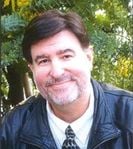 |
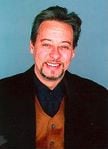 |
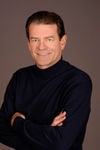 |
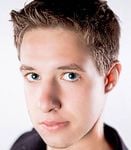
|
Foreign announcers
Brawl onwards
| Jean Faure (French) | Carlos Lobo (Spanish) | Achim Barrenstein (German) | Luigi Fantino (Italian) |
|---|---|---|---|
Ultimate
| Dutch | Russian |
|---|---|
Trivia
- So far, 4 announcers have voiced another character other than Master Hand and Crazy Hand.
- Jean-Marc Delhausse, who provides the French announcer in Smash 64, later reappeared as a voice actor in subsequent games in the series, voicing Lucario, Ivysaur, and various Poké Ball Pokémon in the French versions of the games.
- Carlos Lobo and Luigi Fantino, who provide, respectively, Spanish and Italian announcement in Brawl, Smash 4 and Ultimate, also voice Lucario in their respective localizations.
- Xander Mobus, who provides the English announcer in Smash 4 and Ultimate, also voices Joker in the English localization of Ultimate.
- Xander Mobus booked his role with the same microphone Kenny James (Bowser's current voice actor outside of Super Smash Bros.) gifted him, when he was performing theater alongside James.
- In spite of Brawl using a Korean announcer, Ultimate uses the English announcer and translates certain names into Korean (such as the Ice Climbers being called "Eol'eum Tagi", the duo's Korean name from Brawl, Rosalina & Luma has a new announcer call, which refers the former with her English name and the latter as "Chiko", its Japanese name), while using the Japanese translations (such as Robin still being called Reflet) for others.
- Ultimate's Korean version also mixes English and Japanese announcer clips to accommodate for the language's pronunciation; for instance, King Dedede, Simon and Richter use English pronunciations, while Lucina and King K. Rool use Japanese. Oddly, R.O.B.'s announcer call also uses his Japanese name ("Robot"), despite his English name being displayed in the Korean version.
- In Super Smash Bros., a German voice line for when selecting Captain Falcon is completely missing so the game uses the English version instead.
- Super Smash Bros. and Melee are the only games in the series to have the announcer shout the game's title at the title screen.
- Brawl contains unused, empty announcer files for what appears to be the announcer shouting the title's name; in the final game, there are no voice clips for this. Other unused files also feature the countdown at the end of a match starting at ten seconds, rather than five.
- In Smash 4, some lines in the German version, such as "Perfect" and "Replay Channel", sounds unusually different compared to other lines.
- In a similar vein, for new lines for Ultimate in the German version, the announcer sounds slightly deeper than in Brawl and Smash 4.
- Oddly, the NTSC French version of Smash 4 and Ultimate feature several minor inconsistencies on the pronunciation of character names. For example, "Ice Climbers", "Roy", "Link Cartoon", "Robin", "Larry", "Roy", "Morton" and "Ryu" are pronounced with an "R" which is more akin to the English R, while most other characters (even with "Rosalina & Luma", in turn the former is referred to as "Harmonie" in the PAL version) are pronounced with a typical "Guttural R" in Parisian French, which is prominently used in the PAL version.
